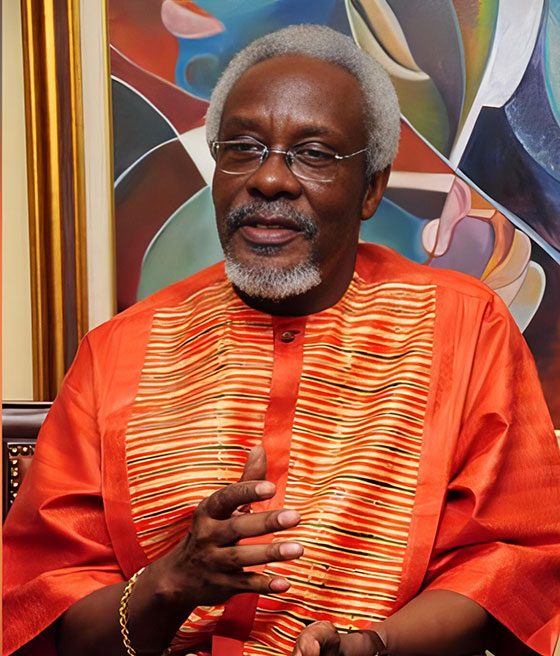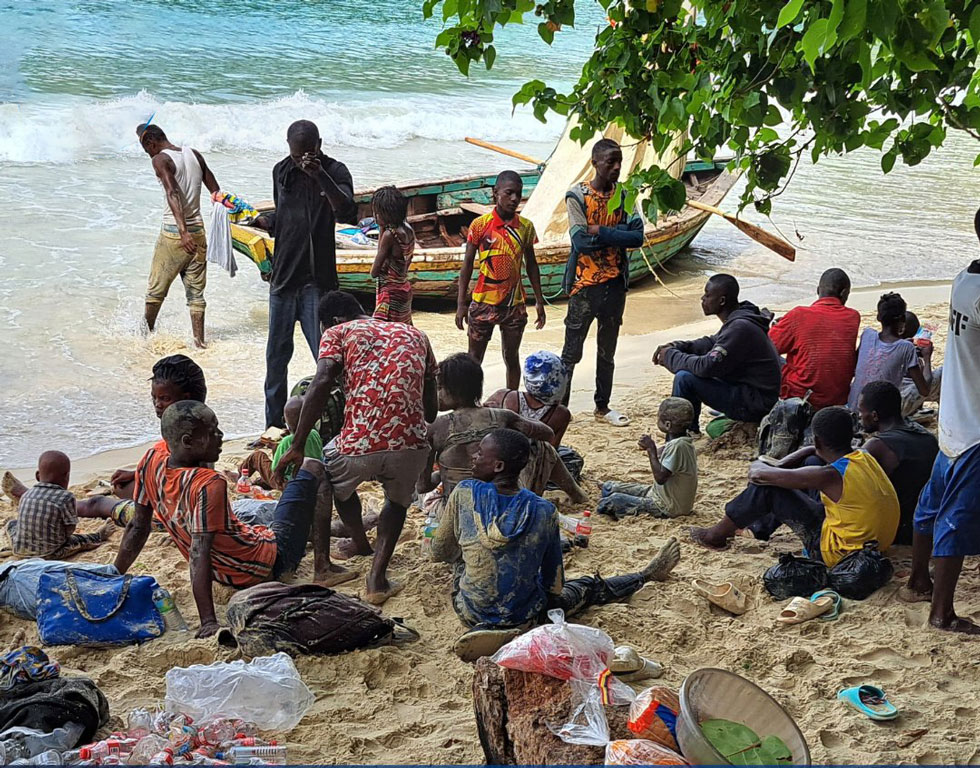JAMAICA'S disgraceful response to the Haitian Tragedy

MONTEGO BAY, July 19, 2023 - On Tuesday the 18th of July, 29 adult members of the 37 Haitians who landed at Boston Bay in Portland a week ago, were hauled before the court and convicted of the crime of illegal entry.

I doubt that if they were white Ukrainians they would have suffered the same fate.
The Haitian story is internationally well known. No one could have doubted that the Haitians were asylum seekers and refugees. And what's the point of hauling them before the Court to pay a fine they’re not expected to have?
Clearly, the world’s refugees, which according to United Nations figures number 27.1 million in 2022, are not expected to show up at your doorstep bearing passports and US dollars seeking official entry.
Hence the manner in which Jamaica is treating fellow CARICOM nationals, knowing fully well the gravity of the violence and persecution among other things that has propelled them along with thousands of their fellow citizens, to flee the violently inhumane conditions into which Haiti has over time devolved, is deeply disturbing.
It is ironic that the Jamaican government is now proceeding to “skin off its fingers” with an attitude depicting a false sense of superiority, pretending to help our Haitian refugee neighbors in their hour of need.
Unfortunately, the Jamaican response in relation to the Haitians is not unique: A similar attitude has also been displayed by the governments of the Bahamas, Guyana and next door in the Dominican Republic!
It therefore begs the question of what will happen when in March next year, the free movement of CARICOM nationals which has been the hallmark of the community's thrust since the signing of the Treaty of Chaguaramas in 1973, will now become a reality.
CARICOM in recognition of this crisis, appointed Jamaica, in the person of Prime Minister Andrew Holness, to monitor the Haitian situation in its effort to help solve that country’s seemingly intractable dilemma created in part by France, Britain, the United States, and yes, the United Nations.
In addition, CARICOM appointed an Eminent Persons Group headed by former St. Lucian prime minister Kenny Anthony and including former prime ministers Perry Christie of the Bahamas and Bruce Golding of Jamaica to seek a solution to the Haitian tragedy.
To this end, they have so far held meetings with Haitian Stakeholders in Kingston, Jamaica on June 15, 2023, and again met stakeholders in Haiti on 12-15 of July 2023 in an effort to seek a local solution to an international tragedy.
In fact, only a few days ago, Prime Minister Holness was in Brussels urging countries in the European Union (EU) to seriously consider contributing financially to the efforts to help alleviate the humanitarian and security challenges facing Haiti.

Patterson described the Haitian situation as a tragic paradox, as it was “the first Black Nation in this hemisphere which won its independence on the battlefield and simultaneously declared the abolition of slavery, but was now the poorest and least developed in the Americas.
It is this paradox in which Jamaica now finds itself as a major player in this international humanitarian crisis of major proportions.
The Holness administration instead of crafting an interim humanitarian solution for the three girls, five boys, five women and 24 men, who arrived in the island, in a small 18 foot canoe, after braving the high seas and landed at Boston Bay last week, have ordered that they be repatriated to the virtual ‘hell hole’ from which they are seeking refuge?
But the situation is far deeper than that. It has to do with the lack of recognition of the rights of these Haitians asylum seekers and refugees, and the fact that this international reality is now on our doorstep.
The United Nations defines a refugee as someone who: “owing to well-founded fear of being persecuted for reasons of race, religion, nationality, membership of a particular social group or political opinion, is outside the country of his nationality and is unable or, owing to such fear, is unwilling to avail himself of the protection of that country; or who, not having a nationality and being outside the country of his former habitual residence, is unable or, owing to such fear, is unwilling to return to it."

There are also millions of stateless people, who have been denied a nationality and lack access to basic rights such as education, health care, employment and freedom of movement.
We are living at a time when according to the UN Refugee agency, more than 1 in every 74 people on Earth have been forced to flee their homes as a result of persecution, conflict, violence, human rights violations or events seriously disturbing public order.
While important strides have been made at international law, towards the realisation of the rights of refugees and asylum seekers, the recognition of the socio-economic rights of refugees and asylum seekers remains a great challenge at all levels in Africa and the Caribbean.

We do not have to look far to see this reality which continues to play itself out in Britain which illegally wants to send refugees of colour to Rwanda and in the United States where the Governor of Texas greets fleeing Latin Americans and Caribbeans with razor wires and well armed national guards.
Several factors account for this, including non-domestication of international norms and standards on the rights of refugees and asylum seekers, lack of appropriate legislation to address the needs of refugees and asylum seekers, hostility and xenophobic tendencies and lack of political will by host states to implement existing standards on the rights of refugees and asylum seekers.
When the thirty seven Haitian refugees who said they were trying to get to Florida ended up on the shores of Boston Beach last week, the Jamaican people in Portland and St. Mary welcomed them, offering food and shelter and making them comfortable.
They are being housed at the Seventh Day Adventist camp site in Robin's Bay and the shelter is managed by the St. Mary branch of the Jamaica Red Cross.
In addition, food and toiletries are being supplied by the JP Association as well as the Lay Magistrates Association in St. Mary.
The health department gave the migrants a clean bill of health, and many are said to be skilled craftsmen ready to work and earn a living in whatever country chooses to give them a home.
While Jamaica may not be in a position to absorb all refugees who may turn up on the country’s doorstep, perhaps the government may need to establish a temporary shelter, similar to what took place years ago at Montpelier in St. James when another group of Haitians landed in Jamaica, until a determination can be made along with the UNHCR on how to proceed.
As a country we need not be so disgusting, duplicitous, and hypocritical in relation to Haiti. In fact, there is a delicately woven historical relationship between Haiti and Jamaica.

That Boukman rebellion is said to mark the beginning of the Haïtian Revolution and which was continued by Toussaint Louverture who joined the revolution several weeks after it had begun and had spread to encompass thousands of slaves across the colony.
The revolution, eventually led by Louverture, succeeded in liberating the slaves But in the succeeding years, France made generations of Haitians pay for their freedom — in cash. This Reparation to the French enslavers, became The Root of Haiti’s Misery,
In 1825, barely two decades after winning its independence against all odds, Haiti was forced to begin paying enormous “reparations” to the French slaveholders it had overthrown.
Those payments proved to be a staggering burden for this fledgling nation, which had the unfortunate distinction of being a republic formed and led by blacks who’d risen up against the institution of slavery.
As such, Haiti’s independence was viewed as a threat by all slave-owning countries –to include Britain, the United States, and the Netherlands among others.
Thus the impoverished nation of Haiti had little choice but to accede to France’s reparation extortion demands, which were delivered to Port-au-Prince at gun-point by a fleet of heavily armed warships in 1825.
By complying with the extortion, Haiti gained immunity from French military invasion, relief from political and economic isolation – and a crippling debt that took 122 years to pay off.
The paying off of this extortionary debt was not only the remit of the Haitian government, but was also the burden of every Haitian household as every citizen was urged to reach into their own pockets to help their government raise the amount that was still “owed” to France.
Thanks to the voluntary contributions from the thousands of Haiti’s citizens, most of whom were desperately poor, The $21 Billion extortionary debt that Haiti had to pay France To Preserve Its Independence was finally settled in 1947.
However, the many decades of making regular payments had rendered the Haitian government chronically insolvent, and became the root of Haiti’s misery thus helping to create a pervasive climate of instability from which the country is yet to recover.
There is a high probability that If Chief Takyi or the Maroons had been successful in their many forays against the British, perhaps Jamaica could very well have been in a similar position as Haiti is today.
Again According to PJ Patterson, the Haitian situation is a tragedy of hypocrisy by those who tout democratic values and yet stifle it according to their own narrow self interests.
-30-
